
8 minute read
Snippets
Civil and Criminal
Co-Editor Judge Carey Walker, County Criminal Court No. 2
by Judge Bob McCoy g County Criminal Court No. 3
ASK JUDGE BOB
Judge Bob, what are “non-probate assets”? Life insurance policies that are contractual in nature, become effective at the decedent’s death, and control the disposition of the asset by reason of the death, along with the proceeds paid to the named beneficiary therefrom, are nontestamentary transfers and non-probate assets that pass according to their contractual terms. Non-probate assets such as life insurance policies are those that are not subject to disposition by will or the laws of intestate succession. Matter of Estate of Rushing, 644 S.W.3d 383, 386 (Tex.App.— Tyler 2022).
Moses
Noah
MOSES’ AND NOAH’S MONTHLY PARAPROSDAKIAN
(a figure of speech in which the latter part of a sentence or phrase is surprising or unexpected; frequently humorous) It’s the least I can do, and I always like to do the least.
DANES’ QUOTE OF THE MONTH
The greatest love is a mother’s; Then comes a dog’s, Then comes a sweetheart’s. —Polish Proverb
DOG LAW – Lillian’s Law (continued from August/September issue)
Under the law, the owner of a loose dog that causes injury or death can be prosecuted if the owner is found to by “criminally negligent” in failing to prevent the dog from escaping. The third-degree felony charge can bring a sentence of two to ten years in prison and a $10,000 fine. If the victim dies, a dog owner can be charged with a second-degree felony, bringing up to 20 years in prison. To gain a conviction under Lillian’s Law, prosecutors may still have to prove beyond a reasonable doubt that the dog owner knew or should have known that his dog was going to cause death or severe bodily injury. As a side note, according to DogsBite.org, a 16-year study from 2005 through 2020 showed that 568 Americans were killed by canines. 67 percent were from pit bulls, 9 percent from rottweilers, and 24 percent from all other breeds combined. 16 www.tarrantbar.org ▪ NOVEMBER/DECEMBER 2022
CRIMINAL ITEMS OF INTEREST
1. Brady v. Maryland
To determine whether the State, through its representatives in the trial court, has violated its Brady obligations, we consider: (1) whether the information in question is favorable to the accused, either because it is exculpatory or impeaching; (2) whether the State possessed and suppressed the information either willfully or inadvertently; and (3) whether the information was material, meaning whether there is a reasonable probability that, had the evidence been disclosed, the result of the proceeding would have been different. Harrell v. State, 611 S.W.3d 431 (Tex.App.—Dallas 2020).
2. Plea to the Jurisdiction
A plea to the jurisdiction is a dilatory plea; its purpose is “to defeat a cause of action without regard to whether the claims asserted have merit.” Such a plea challenges the trial court’s jurisdiction over the subject matter of a pleaded claim. Fort Bend Appraisal District v. Church, 611 S.W.3d 443 (Tex. App.—Houston [14th Dist.] 2020).
3. Summary Judgment
“If a party receives notice that is untimely, but sufficient to enable to the party to attend the summary judgment hearing, the party must file a motion for continuance or raise the complaint of late notice in writing, supported by affidavit evidence, and raise the issue before the trial court during the summary judgment hearing.” Emmaneul v. Izoukumor, 611 S.W.3d 453 (Tex.App.—Houston [14th Dist.] 2020).
4. Writ of Habeas Corpus in a Child Custody Case
A trial court’s order granting or denying a writ of habeas corpus in a child custody case is not appealable if the Family Code does not provide for an appeal. The Family Code does not provide for an appeal in such a habeas corpus proceeding, and the only available appellate remedy is a petition for a writ of mandamus. Maadani v. Ward, 611 S.W.3d 460 (Tex.App.—Houston [14th Dist.] 2020).
5. Double Jeopardy
The Double Jeopardy Clause provides three types of protection: 1) protection against a second prosecution for the same offense following an acquittal; 2) protection against a second prosecution for the same offense following a conviction, and 3) protection against multiple punishments for the same offense.
6. Pleadings
We cannot use a liberal construction of the petition as a license to read into the petition a claim that it does not contain. Liberal construction can be used to amplify a pleading but not to create a claim. City of Dickinson v. Stefan, 611 S.W.3d 654 (Tex.App.—Houston [14th Dist.] 2020).
7. DWI
“Breath or blood test results can be relied upon, even without retrograde extrapolation testimony, along with other evidence of intoxication to determine whether a particular defendant was intoxicated, as the term is defined, at the time of driving.” Ortiz v. State, 628 S.W.3d 958 (Tex.App.—Amarillo 2021).
CIVIL ITEMS OF INTEREST
1. Damages
A jury is not bound to award the exact amount requested by the plaintiff, and it does not have to rely solely on an expert’s opinion in calculating damages. The jury’s findings, however, must find support in the evidence. Gulf Coast Center v. Curry, 644 S.W.3d 370, 376 (Tex.App. —Houston [1st Dist.] 2020).
2. Plea to the Jurisdiction
We review a trial court’s ruling on a plea to the jurisdiction de novo. … When, as in this case, the plea to the jurisdiction challenges the existence of jurisdictional facts, then, like the trial court, we “consider evidence as necessary to resolve any dispute over those facts, even if that evidence ‘implicates both the subject-matter jurisdiction of the court and the merits of the case.’” The Dep’t of State Health Servs. v. Kerr, 643 S.W.3d 719, 728 (Tex.App.—Amarillo 2022).
3. Administrative Law
An agency decision is arbitrary if the agency “failed to consider a factor the legislature directs it to consider.” Dyer v. Texas Com’n on Envtl. Quality, 646 S.W.3d 498, 508 (Tex. 2022).
4. Statute of Limitation
Whether the plaintiff “should have known” of the facts giving rise to the claim is an objective inquiry. The question is whether the injury incurred is “inherently undiscoverable.” “An injury is inherently undiscoverable if it is by nature unlikely to be discovered within the prescribed limitations period despite due diligence. Berry v. Berry, 646 S.W.3d 516, 524 (Tex. 2022).
5. Suit for Divorce
In a suit for divorce, the pleadings are not deemed admitted by the defendant’s failure to appear, so the plaintiff must present sufficient evidence to support the material allegations in the
6. Third-Party Beneficiary
Nor does it matter that the third party intended or expected to benefit from the contract, for only the “intention of the contracting parties in this respect is of controlling importance.” To create a third-party beneficiary, the contracting parties must have intended to grant the third party the right to be a “claimant” in the event of a breach. Wal-Mart Stores v. Xerox State & Local, 646 S.W.3d 546, 558 (Tex.App—Dallas 2020).
LEGAL QUOTE OF THE MONTH
Deceive not thy physician, confessor, nor lawyer. —George Herbert
TRADITIONAL IRISH LAW
If a tribesman wounds a bishop, and the bishop’s blood reaches the ground, the culprit shall hang for it.
OLD NEWS
The Fire of 1909
On April 5, 1909, a disastrous fire swept the south side of Fort Worth, the largest conflagration in the city’s history. Hundreds of buildings and more than 200 houses were destroyed, leaving thousands homeless; Broadway Baptist Church, Broadway Presbyterian Church, and the Texas and Pacific roundhouse were among the buildings lost.
The flames burned down every structure in a 32-square-block area. J.J. Nowlin was the only fatality, but several dozen were injured. Property loss was set at $2.5 million. g
Happy Holidays!
TCBA offices will be closed Friday, December 23 & Monday, December 26. Regular hours will resume on Tuesday, December 27.




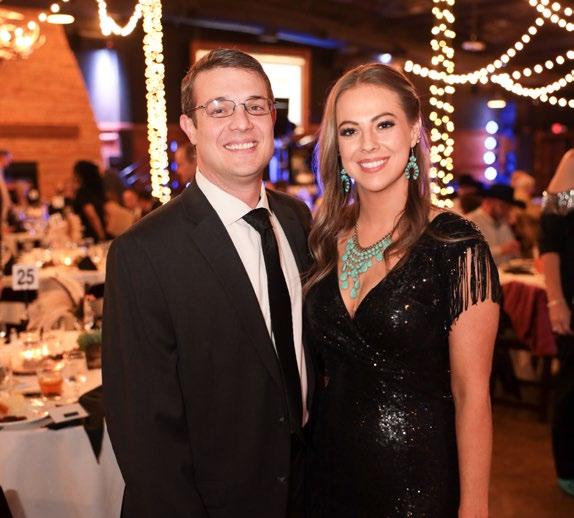
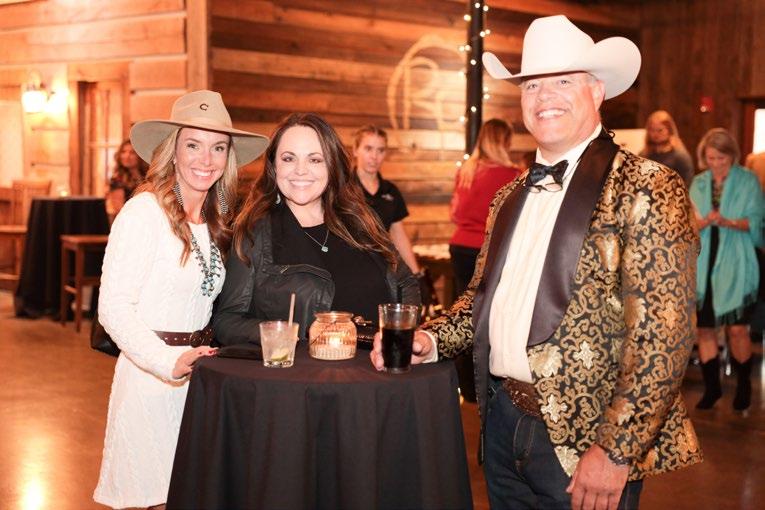



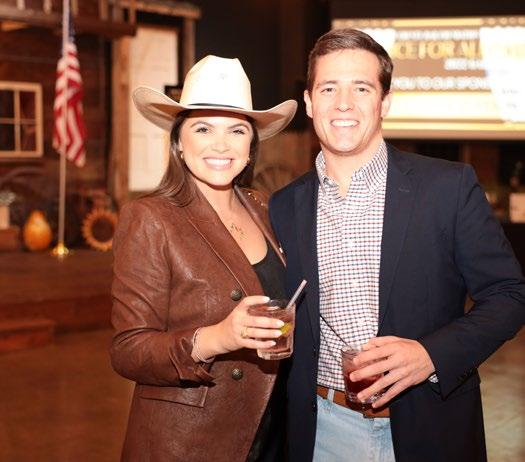


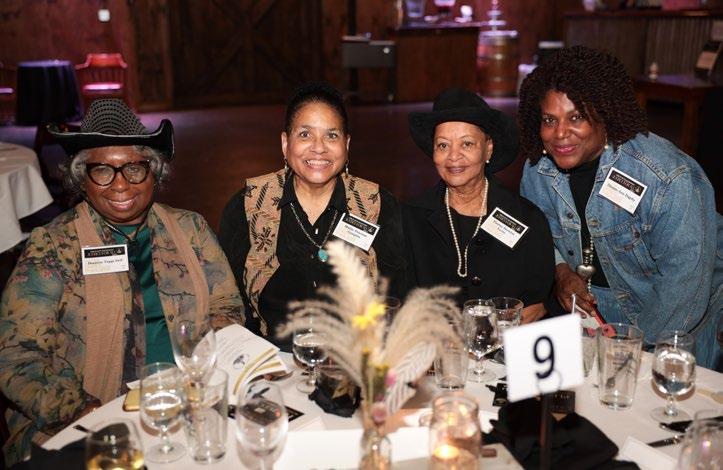

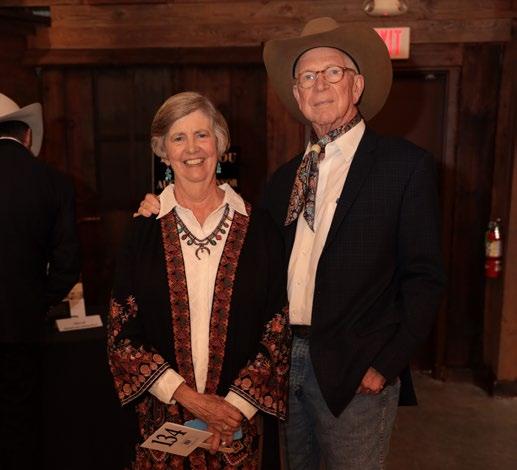

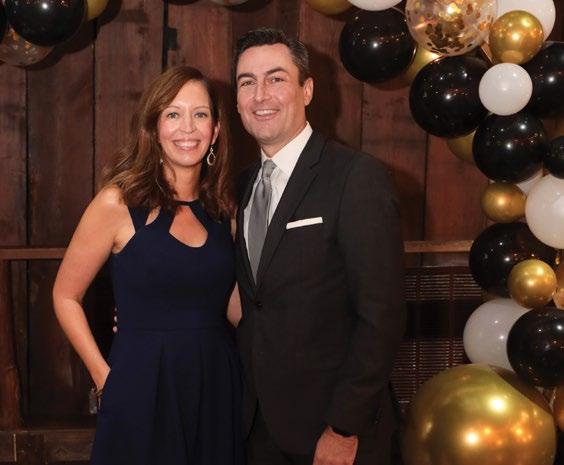

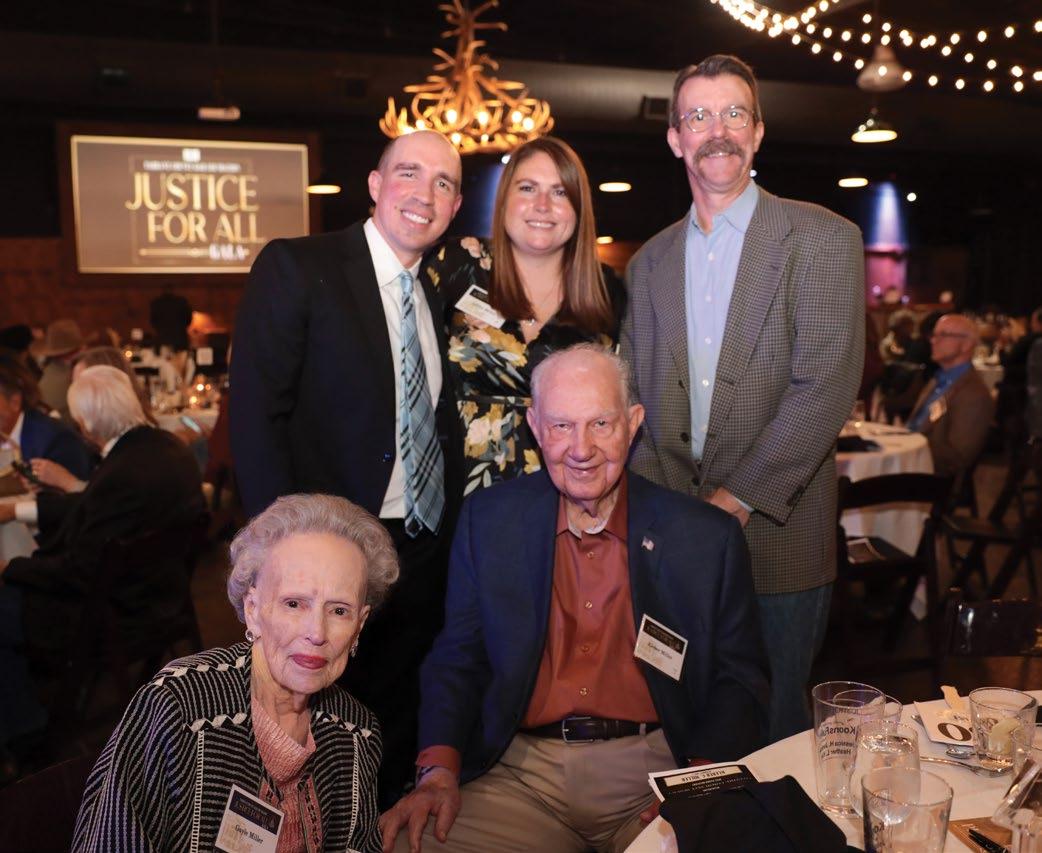
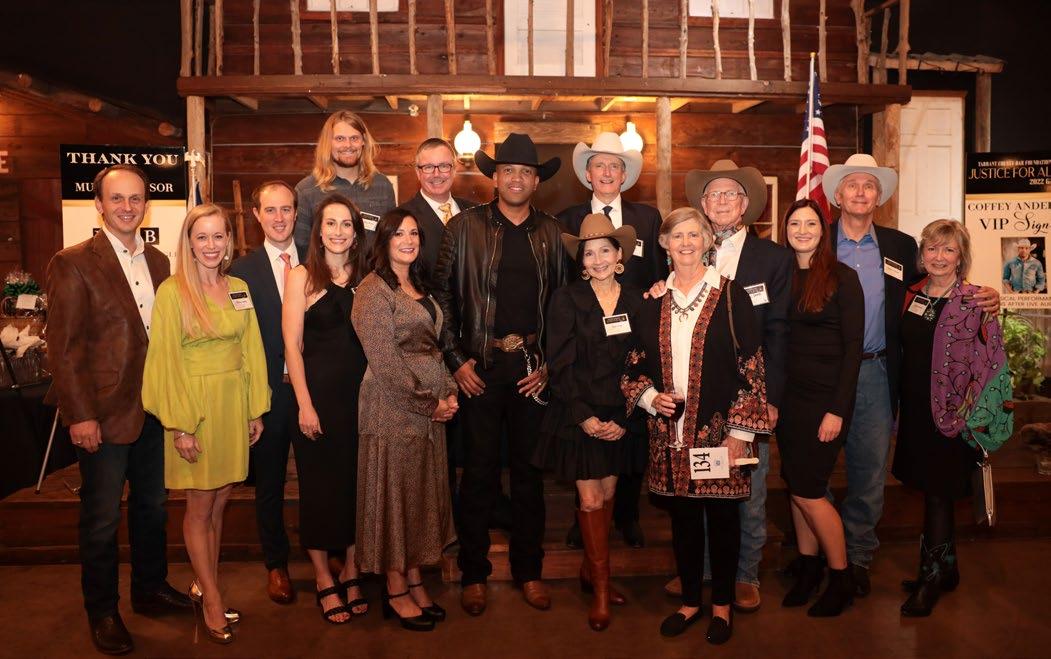

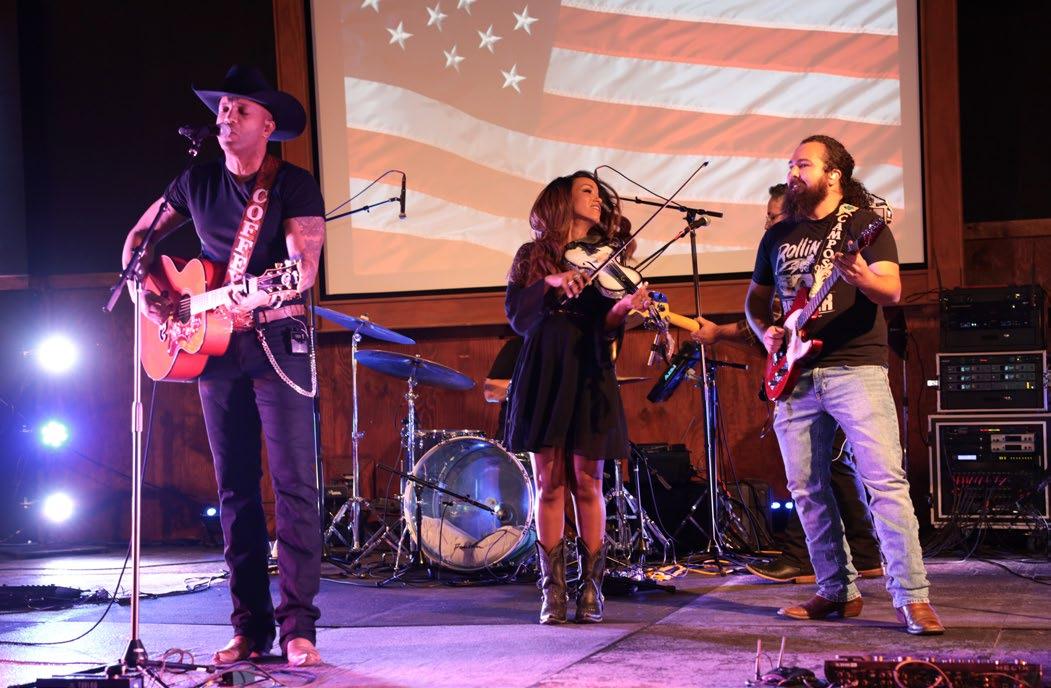

THANK YOU TO OUR 2022 GALA SPONSORS
Harris, Finley & Bogle, P.C. Kelly Hart & Hallman LLP The Medlin Law Firm, PLLC
Jessica H. Janicek/Heather L. King /KoonsFuller, P.C.
Cantey Hanger LLP Haynes and Boone, LLP
Amon G. Carter Foundation Bourland, Wall & Wenzel, P.C. Kearney, McWilliams & Davis, PLLC
Brackett & Ellis, P.C. Frost Bank Higginbotham Insurance Agency, Inc. Jackson Walker LLP Mattie Peterson Compton McDonald Sanders, P.C. Pham Harrison, LLP Texas A&M University School of Law Underwood Law Firm, P.C.








